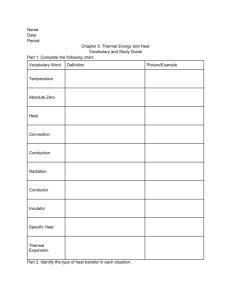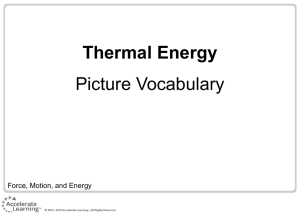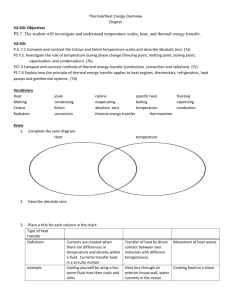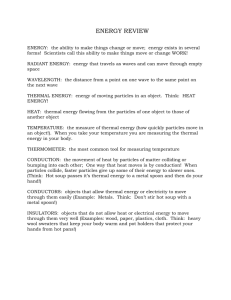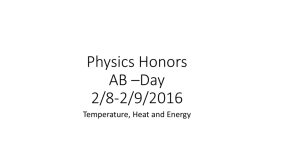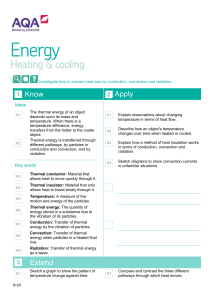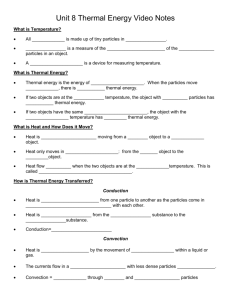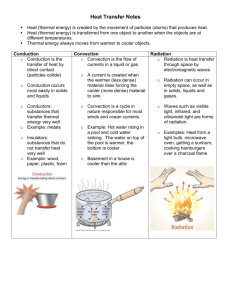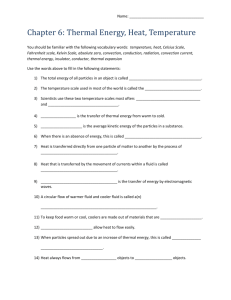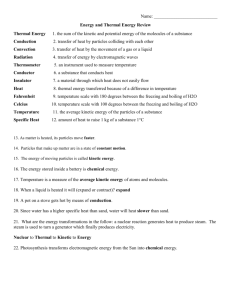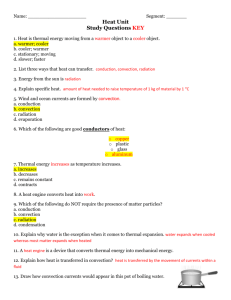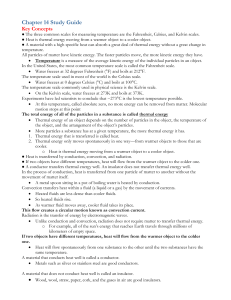Temperature vs. Thermal Energy
advertisement
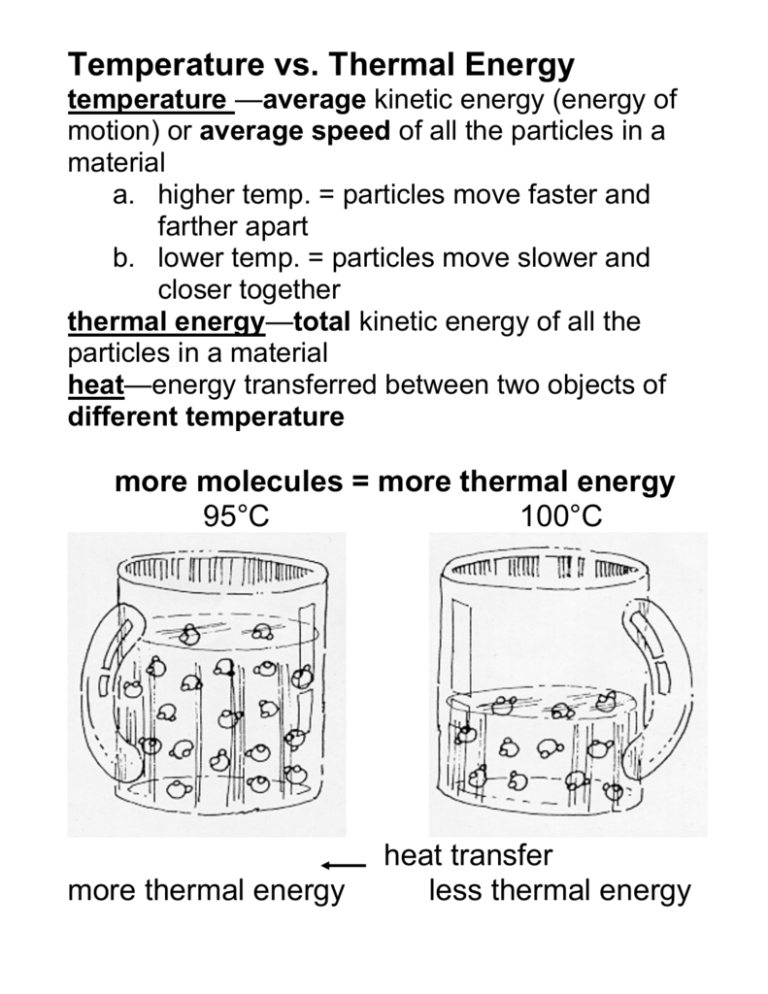
Temperature vs. Thermal Energy temperature —average kinetic energy (energy of motion) or average speed of all the particles in a material a. higher temp. = particles move faster and farther apart b. lower temp. = particles move slower and closer together thermal energy—total kinetic energy of all the particles in a material heat—energy transferred between two objects of different temperature more molecules = more thermal energy 95°C 100°C more thermal energy heat transfer less thermal energy Example: Lake Mendota is close to freezing (1°C) while a cup of boiling water is 100°C. Yet, if placed next to the lake in below freezing temperatures, the cup of boiling water freezes first because it has less thermal energy than Lake Mendota. Types of Heat Transfer conduction—transfer of energy from molecule to molecule within a substance touching a hot burner convection—transfer of energy by the mass movement of a liquid or gas feeling warmer, less dense air pushed up above the hot burner radiation—transfer of energy by waves feeling the warmth off to the side of the hot burner Heat transfer within the atmosphere a) Sun radiates Earth, heating the surface b) Air in contact with Earth’s surface is heated by conduction c) Warmer, less dense air, pushed up by cooler, more dense air, transferring thermal energy by convection
